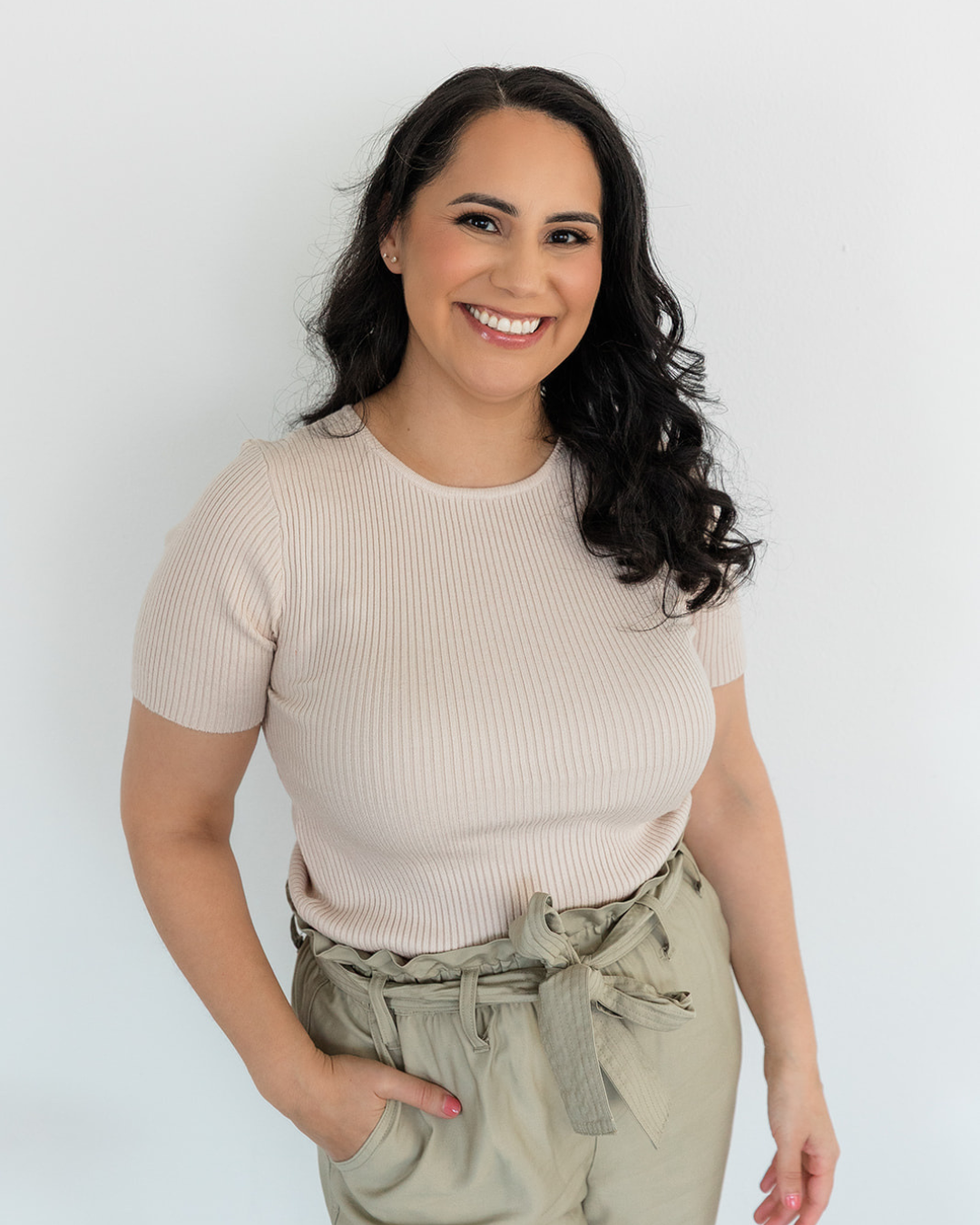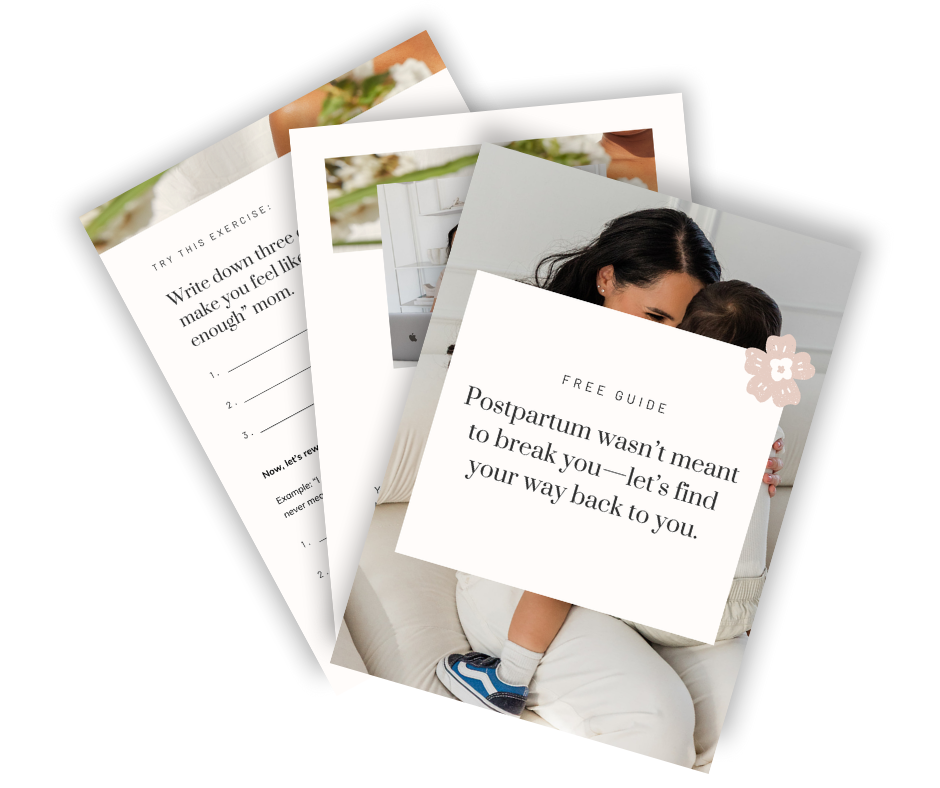Postpartum depression therapy in Los Angeles
Postpartum depression (PPD) is not just “baby blues.” It’s an overwhelming emotional experience that can make it feel impossible to bond with your baby, care for yourself, or feel like yourself again. Many mothers suffer in silence, believing they should just "push through"—but the truth is, you don’t have to carry this alone.
In case you are new here, I’m Karla Hernandez, a maternal mental health therapist specializing in postpartum depression therapy. If you’re struggling with feelings of sadness, overwhelm, or disconnection after birth, you are not alone—and you deserve support.
As a therapist for new moms in Los Angeles , I provide a compassionate, non-judgmental space for you to navigate the emotional toll of motherhood.
What is postpartum depression therapy?
Postpartum depression therapy is a space where you can be honest about the thoughts you’re afraid to say out loud—without judgment, without shame, and without the pressure to “just be grateful.”
- Many new mothers experience:
- Persistent sadness, crying spells, or feelings of hopelessness
- Guilt or shame for not feeling as joyful as they expected
- Loss of interest in things they once enjoyed
- Feeling disconnected from their baby or struggling to bond
- Extreme exhaustion or difficulty functioning in daily life
- Anxiety, racing thoughts, or constant worry about their baby’s well-being
- Feeling like a failure or believing their baby would be better off without them
These thoughts and feelings can be terrifying and isolating, but postpartum depression is treatable—and with the right support, you can heal.
Most common symptoms of postpartum depression
PPD can look different for every mother, but some common symptoms include:
- Feeling emotionally numb, disconnected, or like a "different person"
- Intense sadness or crying for no apparent reason
- Loss of interest in things you once enjoyed, including your baby
- Feeling overwhelmed, exhausted, or unable to function in daily life
- Difficulty bonding with your baby or feeling resentful toward them
- Irritability, anger, or mood swings that feel out of control
- Racing thoughts, excessive worry, or feelings of impending doom
- Fearing that you are a bad mother or that you are failing your baby
If these feelings have lasted for more than two weeks or are making it hard to function, therapy can help you feel like yourself again.
How do I know if I have postpartum depression or just normal exhaustion?
Many mothers wonder if what they’re feeling is just part of the exhaustion of new motherhood.
Ask yourself:
- Am I feeling down, empty, or hopeless most of the day?
- Do I feel emotionally disconnected from my baby, even though I love them?
- Am I constantly worrying about my baby’s safety or my ability to care for them?
- Do I feel like I’ve lost myself, or like I’ll never feel normal again?
- Do I have thoughts that my family would be better off without me?
If you answered yes to any of these, you might be experiencing postpartum depression. Therapy can provide relief and help you reconnect with yourself.
How I treat postpartum depression in Los Angeles
My approach to postpartum depression therapy in Los Angeles is based on compassionate, trauma-informed care tailored to your individual experience. Together, we will focus on:
- Processing difficult emotions without shame or judgment
- Identifying and challenging negative thought patterns contributing to depression
- Developing coping strategies to manage sadness, guilt, and exhaustion
- Strengthening your support system and learning how to ask for help
- Reconnecting with yourself and your baby in a way that feels safe and natural
I use a combination of:
- Cognitive Behavioral Therapy (CBT) to reframe negative thoughts and beliefs
- Mindfulness techniques to regulate emotions and reduce overwhelm
- Self-compassion and identity work to help you rediscover yourself in motherhood
- Practical tools for managing exhaustion, overwhelm, and intrusive thoughts
Postpartum depression is not a failure, a weakness, or a sign that you’re a bad mother—it’s a medical condition, and with the right treatment, you can heal.
What topics can we talk about in therapy for postpartum depression?
Every mother’s experience is different, but therapy may include:
- Identifying and managing postpartum depression symptoms
- Processing feelings of guilt, resentment, or disconnection from your baby
- Healing from birth trauma or difficult postpartum experiences
- Addressing identity loss and self-worth in motherhood
- Finding emotional and practical support to lighten the mental load
Therapy is a space where you can be honest about what you’re feeling and start taking steps toward healing.
Ready to get started?
Book a consultation call
No pressure, no judgment—just a space to share what you’re going through and see if this support feels right for you.
Let’s meet where you are
Whether you’re running on no sleep, feeling stuck in survival mode, or just need someone to validate how hard this is, we’ll start from exactly where you are.
Start healing and thriving in your motherhood
With the right support, you can release the guilt, find balance, and reconnect with yourself—because you deserve to feel whole, not just needed.
Postpartum depression therapy specialists in Los Angeles

I specialize in postpartum depression therapy in Los Angeles, helping new mothers find relief, reconnect with themselves, and heal after birth.
Motherhood is supposed to change you, but it’s not supposed to break you—and with the right support, you can begin to feel like yourself again.
Tips & resources for coping with postpartum depression
Talk to someone you trust—you don’t have to keep this to yourself
- Give yourself permission to rest—exhaustion makes everything feel heavier
- Challenge self-judgment—motherhood is hard, and you are doing your best
- Try gentle movement, fresh air, or mindfulness practices to reset your nervous system
- Consider professional support—you don’t have to go through this alone
If you are struggling, reaching out for help is not a sign of weakness—it’s the first step toward healing.

Hello! I'm Karla Hernández
LCSW perinatal and postpartum therapist serving women in Los Angeles and surrounding areas
I help new moms in Los Angeles navigate postpartum anxiety, depression, and the emotional shifts of motherhood. After experiencing my own struggles, I saw how much real support is missing for mothers. My practice is here to change that—offering trauma-informed, compassionate care that meets you exactly where you are. You don’t have to do this alone.

Book your therapy for postpartum depression in Los Angeles
- Intake (50 to 60 minutes) $200
- 50 minute individual therapy sessions are $200
- I accept Aetna and Cigna insurance
- Additionally I partner with Mentaya, who may help you get reimbursed for your therapy sessions through out of network benefits (I have a link to check benefits instantly to see if you qualify)
FAQ
What does postpartum depression feel like?
Postpartum depression can feel like deep sadness, emotional numbness, extreme exhaustion, or a sense of detachment from your baby and yourself. Every mother’s experience is unique, but if you’re struggling to feel like yourself, therapy can help.
How long does postpartum last?
Postpartum depression can last for weeks, months, or even longer if left untreated. The sooner you seek support, the sooner you can start feeling better.
How do you deal with postpartum depression?
Therapy, self-compassion, rest, and support are key. Many mothers benefit from counseling, lifestyle adjustments, and, in some cases, medication.
Why am I so sad after having a baby?
The postpartum period comes with hormonal shifts, exhaustion, identity changes, and an overwhelming mental load. Therapy can help you process these emotions in a safe space.
Is it normal to feel disconnected from my baby?
Yes. Many mothers struggle with bonding, emotional numbness, or guilt. Therapy provides tools to rebuild that connection without pressure or shame.